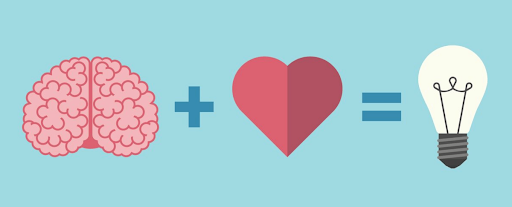What is Emotional Intelligence and How Can You Improve Yours?

December 31, 2021
Emotional intelligence is the ability to perceive, understand, manage, and use emotions. People who show high emotional intelligence (EQ) also show high social intelligence, work ethic, and they can better delay gratification; such as getting a paycheck every two weeks. It’s important to note that emotionally intelligent people are not always happy. Rather, they can recognize positive and negative emotions such as frustration or joy, and manage them according to the situation they’re in. They also tend to be realistic about themselves, and therefore have high confidence.
EQ is different from general intelligence. General intelligence (g) underlies one’s overall cognitive ability. General intelligence can also be measured numerically. For example, the IQ (intelligence quotient) test is designed to measure one’s intellectual ability compared to that of other people their age. To do this, mental age is divided by chronological age and then multiplied by 100. If you get a score of 100, you are average. EQ is still a very young idea compared to that of g, so there is no standardized numerical way to measure it.
Determining EQ
There are a few quality tests that can help you determine where you stand, but they are not free. However, there are a few “hallmarks of a low EQ” that can help you determine your weaknesses and strengths so you can begin to build upon that knowledge:
- Getting stressed easily- anxiety and stress that goes unmanaged, and then builds up quickly because it goes unmanaged could be a sign that you lack the ability to recognize and manage emotions as they happen.
- Difficulty asserting yourself- A person who is unable to balance displaying good manners and creating boundaries. A person who lacks EQ may not be able to handle conflict without being aggressive, so they might not handle these emotions at all.
- Having limited emotional vocabulary- Unlabeled emotions tend to go misunderstood. If one cannot understand their emotions, they will most likely lead to irrational decisions and erratic behavior.
- Making assumptions- The habit of making assumptions usually comes from a phenomenon called “confirmation bias”. This basically means that you might gather evidence that supports your opinions, and ignore evidence to the contrary. This is a natural human behavior, and we all do it. However, a person who lacks EQ will fervently defend their belief even after it’s been proven wrong.
- Holding grudges- The emotions that come from holding a grudge are actually a stress response. When you think about the event that triggered the grudge, it sends you into a state of fight or flight. The habit of holding grudges can be drawn back to managing stress in the present.
- Feeling misunderstood- Feeling misunderstood has to do with lacking the ability to realize how one might come across to others. Even when they feel as if they didn’t get their point across, they won’t be able to understand why. This is different from realizing mistakes and forgetting them or letting them make you anxious.
Understanding Your EQ
Even though you can’t get a numerical score for your emotional intelligence, after reading the markers for a low EQ, you might be wondering if it’s possible to improve in the areas you feel you aren’t proficient in. When it comes to increasing overall EQ, there are two ideals that can be argued in order for those to understand the different ways to improve one’s EQ.
Firstly, many turn back to what we know about the well-studied general intelligence. General intelligence can be determined by early childhood, education, and notably genetics. It’s been asked whether intelligence is innate, so naturally, we wonder whether or not EQ is the same. There is in fact a correlation of +.33 between brain size and intelligence score. This is shown on brain scans where highly intelligent people have ample grey matter (neural cell bodies) and white matter (axons) in the frontal and parietal lobes of the brain. To give a simple example, Einstein’s brain was 15% larger than the average person in the parietal lobe’s lower region which is the center for mathematical and spatial reasoning. However all of this information cannot be officially applied to EQ because we know so little about it.
The second perspective honestly offers little extra hope. People who say you can improve your emotional intelligence promise that it will require extreme persistence and dedication, as well as guidance. Recall a time you tried to change a habit, or even create a new one such as trying to drink enough water everyday. It wasn’t easy, right? Now imagine trying to control every thought that enters your mind. This is obviously multitudes harder.
In the end, though, it must be repeated that we know very little about emotional intelligence. It is being found that EQ tends to increase with age without intentional intervention. This is known widely as maturing with age. It’s also very important to remember that EQ doesn’t dictate how good of a person one is, but rather how they handle the distinctly human emotions they feel. By recognizing our own flaws, we can begin to make the right choices when it’s important, as well as forgive others for their imperfections.

